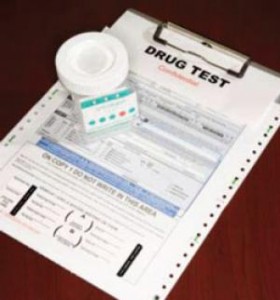Kansas Gov. Sam Brownback (R) Tuesday signed into law a bill that requires applicants for welfare and unemployment benefits to undergo drug testing if there is “reasonable suspicion” they are using drugs. People who test positive would have to undergo drug treatment and job training at state expense before becoming eligible for cash assistance.
 According to Senate Bill 149, “reasonable suspicion” may be derived from “applicant’s or recipient’s demeanor, missed appointments and arrest or other police records, previous employment or application for employment in an occupation or industry that regularly conducts drug screening, termination from previous employment due to use of a controlled substance or controlled substance analog or prior drug screening records of the applicant or recipient indicating use of a controlled substance or controlled substance analog.”
According to Senate Bill 149, “reasonable suspicion” may be derived from “applicant’s or recipient’s demeanor, missed appointments and arrest or other police records, previous employment or application for employment in an occupation or industry that regularly conducts drug screening, termination from previous employment due to use of a controlled substance or controlled substance analog or prior drug screening records of the applicant or recipient indicating use of a controlled substance or controlled substance analog.”
It is not clear why having worked or applied for a job in “an occupation or industry that regularly conducts drug screening” creates “reasonable suspicion” that someone is using drugs, but that’s what the law says.
Gov. Brownback signed the bill during a Tuesday afternoon, saying the state had an obligation to its residents to help them break their addictions and improve their lives through treatment and job training.
“Drug addiction is a scourge in Kansas. This is a horrific thing that hits so many people,” Brownback said. “What this effort is about is an attempt to get ahead of it, and instead of ignoring the problem to start treating the problem.”
Critics of the bill, including the American Civil Liberties Union state chapter, argued that public benefits recipients don’t use drugs any more frequently than anyone else, that such laws perpetuate existing stigmas, and that they unnecessarily invade privacy. But those arguments did hold much sway in the Kansas legislature or with the Republican governor.
Article republished from Stop the Drug War under Creative Commons Licensing









